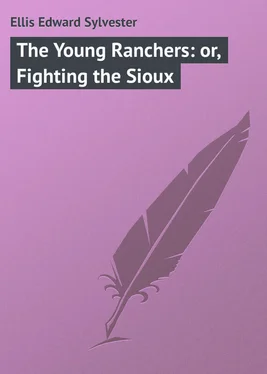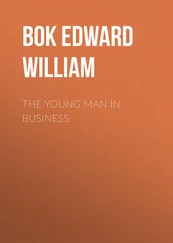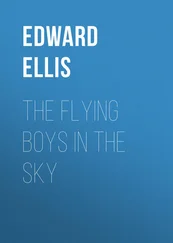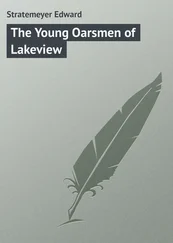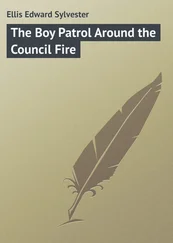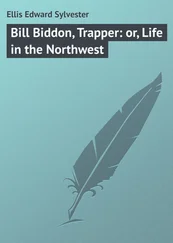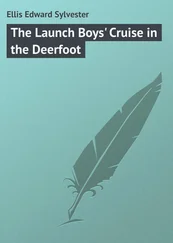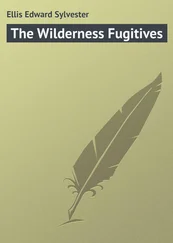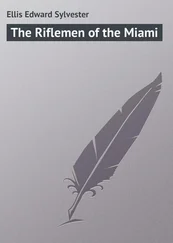Edward Ellis - The Young Ranchers - or, Fighting the Sioux
Здесь есть возможность читать онлайн «Edward Ellis - The Young Ranchers - or, Fighting the Sioux» — ознакомительный отрывок электронной книги совершенно бесплатно, а после прочтения отрывка купить полную версию. В некоторых случаях можно слушать аудио, скачать через торрент в формате fb2 и присутствует краткое содержание. Жанр: foreign_prose, foreign_children, на английском языке. Описание произведения, (предисловие) а так же отзывы посетителей доступны на портале библиотеки ЛибКат.
- Название:The Young Ranchers: or, Fighting the Sioux
- Автор:
- Жанр:
- Год:неизвестен
- ISBN:нет данных
- Рейтинг книги:5 / 5. Голосов: 1
-
Избранное:Добавить в избранное
- Отзывы:
-
Ваша оценка:
- 100
- 1
- 2
- 3
- 4
- 5
The Young Ranchers: or, Fighting the Sioux: краткое содержание, описание и аннотация
Предлагаем к чтению аннотацию, описание, краткое содержание или предисловие (зависит от того, что написал сам автор книги «The Young Ranchers: or, Fighting the Sioux»). Если вы не нашли необходимую информацию о книге — напишите в комментариях, мы постараемся отыскать её.
The Young Ranchers: or, Fighting the Sioux — читать онлайн ознакомительный отрывок
Ниже представлен текст книги, разбитый по страницам. Система сохранения места последней прочитанной страницы, позволяет с удобством читать онлайн бесплатно книгу «The Young Ranchers: or, Fighting the Sioux», без необходимости каждый раз заново искать на чём Вы остановились. Поставьте закладку, и сможете в любой момент перейти на страницу, на которой закончили чтение.
Интервал:
Закладка:
At last Warren Starr learned what it was that had alarmed his pony.
CHAPTER II.
THE VOICELESS FRIEND
The keen eyes, instead of looking at the crest of the rocky ridge on his right, were now centred on the ground, where they detected a small dark speck swiftly approaching the horseman. At the first glance, the object suggested a cannon-ball rolling with great speed toward the pony, that was now standing still, with head erect, ears thrown forward, and the appearance of perplexed interest in the thing, whatever it might be.
For a minute Warren Starr was unable to guess the meaning of the singular sight. Whatever its nature, it was evident that it was aiming to reach the rider with the least possible delay. The latter drew his Winchester around in front, so as to be ready to receive it, his first thought being that it was some Sioux stratagem designed to do him ill.
But while he gazed, he discovered its identity; it was a dog, running as if its very life were at stake. The next instant young Starr perceived something protruding from the front part of its body, resembling the ornamental feather in an Indian's head-dress.
"It is an arrow!" he exclaimed. "The poor creature is badly wounded, and is striving to reach me before he dies. By gracious, it's Bruno!" he added, as a closer approach enabled him to identify the creature. "He brings me some message."
Bruno was his favorite hound, that had accompanied him on many a hunting excursion, and whom he loved scarcely less than Jack, his pony.
It was indeed a race with death on the part of the faithful animal. While yet a number of rods distant, he staggered, faltered, then gathering his energies pressed on with the last strength he could summon, and with a low moan rolled languidly on his side, and looking upward with a human expression to his young master, said by his action: "I have done the best I could for you, and I am content."
Young Starr was out of the saddle like a flash, and ran forward to him. Stooping down, he placed one arm under the head of the noble dog, and, leaning over, touched his lips to the velvety forehead.
"My poor Bruno, they have killed you!" he murmured, with tears in his eyes. "I would give an arm to save you, but it is too late."
He saw that the head of the arrow was sunken deep into the neck, and the dark coat was splashed with crimson. To attempt to withdraw the missile was useless. It could only deepen the agony of the animal without relieving him in the least. He was doomed and dying before he sank to the ground.
Bruno turned his beautiful eyes upward to his master, emitted a low moan, gave a slight quiver and gasp, and was dead. No martyr ever did his duty more heroically.
For a few moments Warren Starr yielded to his grief. He remained with the exquisitely formed head resting on his arm, while the tears fell from his eyes on the form that could never respond again to his caresses. Then he gently withdrew his arm and suffered the head to rest on the ground.
"Your last act was for those you love," he murmured; "you gave your life for us, and no man could do more. No one shall take from me the faith that we shall be happy together beyond the grave. Good-by, my true and faithful friend."
Young Starr was too experienced a scout, despite his youth, to forget in his grief the full significance of the sad incident. The hound had travelled the long distance from the ranch to this point for the purpose of bringing him a message. He had been discovered while on the road, and fired upon by the Indians, who were so near that they used bows and arrows to prevent the young master taking the alarm. Many missiles were doubtless sent after the animal, and one was fated to bring him down, though not until he had accomplished his errand.
Warren knew where to look for the message. He unstrapped the collar, with its silver plate – which he would have done under any circumstance to keep as a remembrance of his voiceless friend – and there, carefully folded and secure under the band, was a piece of paper, containing considerable writing in lead-pencil:
Dear Warren:
Don't come to the ranch. It is sure death to undertake it. A party of twenty and more bucks are near us. They have killed or stampeded our cattle, and will attack us this evening if we remain, which we shall not do. Tim discovered them this afternoon, and learned enough to make sure of their intention. We shall mount our horses and start for Fort Meade. We dare not use the regular trail, along which I suppose you are making your way, but must be guided by circumstances. I think we shall move to the westward, taking the most direct route to the post, but are likely to be forced into a long detour, which renders it impossible for me to give you any direction by which we can meet each other.
I know that your impulse will be to try to join us before we reach the fort, but it is my earnest wish that you shall not attempt it. Turn about at once, while you have time, and retrace your steps. If a day or two shall pass without our coming in, perhaps it may be well to ask the colonel to send out a squad of cavalry to help us, for it is idle to fancy we are not in great peril. It is my prayer that Bruno shall intercept you in time to prevent any mishap. I have instructed him precisely what he is expected to do, and he not only fully understands, but, as you well know, will do it if it be possible.
Your Father.
"You were right," said the youth gently, looking down once more on the inanimate form. "Bruno did his duty, and he deserves a monument for having done it so well."
All this time the pony stood some feet away, motionless, and apparently a deeply interested witness of the singular scene.
He was too well trained to leave his master, who never resorted to the precaution of securing him by his halter.
Meanwhile night was closing in. The gloom was overspreading the prairie so that the ridge, which had been such a cause for solicitude to the youth, was now dimly discernible. In a few minutes it would be swallowed up in the coming darkness.
Resolutely forcing his sadness aside, Warren knelt down and pressed his ear to the ground. If horsemen were approaching he could detect it through the sense of hearing.
Then he climbed once more into the saddle and faced the ridge, debating with himself what was the right course to pursue. His father had said in unmistakable language that he wished him to return to Fort Meade. Warren was a dutiful son, but he could not persuade himself that that was the best thing to do. To follow his parent's wishes would require him to look after his own safety, and to forget those whose lives were dearer to him than his own. To return to the fort, and secure the aid that he knew would be cheerfully given, would take a day or two, during which the crisis must come and pass with his people. Two days at the most would settle the question whether they were to escape or fall victims to the ferocity of the Sioux.
"I can't do it," he said, compressing his lips and shaking his head. "I have never played the coward, and I'm not going to begin when my folks are concerned. My first duty is to find out where father, mother, and Dot are, and then do all I can for their safety."
It was not difficult to reach this conclusion, for which no one will deny him credit; but it was altogether a difficult and formidable task for him to decide what next to do.
Had his friends been following the regular trail to the fort his course would have been simple, since he had only to continue on until he met them; but his father had notified him that not only would he not take that route, but he could not say which one he would adopt. He inclined to think he would turn to the westward, leaving the path on his left, but the question, as he said, must be settled by circumstances.
Читать дальшеИнтервал:
Закладка:
Похожие книги на «The Young Ranchers: or, Fighting the Sioux»
Представляем Вашему вниманию похожие книги на «The Young Ranchers: or, Fighting the Sioux» списком для выбора. Мы отобрали схожую по названию и смыслу литературу в надежде предоставить читателям больше вариантов отыскать новые, интересные, ещё непрочитанные произведения.
Обсуждение, отзывы о книге «The Young Ranchers: or, Fighting the Sioux» и просто собственные мнения читателей. Оставьте ваши комментарии, напишите, что Вы думаете о произведении, его смысле или главных героях. Укажите что конкретно понравилось, а что нет, и почему Вы так считаете.
